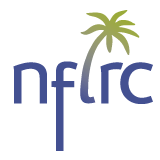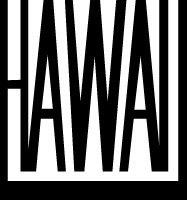Larry Kimura
Assistant Professor of Hawaiian Language and Culture
Ka Haka ʻUla O Keʻelikōlani, College of Hawaiian Language
University of Hawaiʻi at Hilo
Hilo, Hawaiʻi
Ethnolinguistic work: Twenty years, from 1969 to 1989 recording among Hawaiʻi’s last native Hawaiian language speakers born in the late 19th century to the early 20th century, representing a very significant and voluminous collection under the name of Ka Leo Hawaiʻi, of over 700 hours. It is the largest collection of audio documentation of native Hawaiian language and represents the last of native Hawaiian speech from the turn of the 19th century. The only remaining fluent native speakers of Hawaiian are among some 250 people from the privately owned island of Niʻihau. The Ka Leo Hawaiʻi collection is currently being programmed into an electronic database for preservation and as a resource for the Hawaiian language revitalization movement.
Co-Founder of Hawaiʻi’s Pūnana Leo Hawaiian Language Immersion Schools, the first Native American language immersion school in the United States. This work spearheaded the first US indigenous language immersion education program with the Hawaiian language as a medium of instruction for the State Department of Education in 1987.
Chairman of the Hawaiian Lexicon Committee to create new Hawaiian words under the publication title of Māmaka Kaiao. The first edition was published in 1989 and subsequent editions followed in 1996, 1998 and 2003. Professor Kimura is active in the Hawaiian language and culture revitalization efforts continuing as a member of the Board of Directors of the ʻAha Pūnana Leo. He also serves as the Secretary General of Te Waka Reo, The Polynesian Languages Forum, whose membership represents fourteen different Polynesian countries and whose goal is indigenous language maintenance and revitalization.
Hawaiian Cultural Planner and Interpreter for the University of Hawaiʻi at Hilo’s ʻImiloa Center, a bilingual, Hawaiian and English, education center featuring both Hawaiian culture and the latest discoveries of astronomy from the summit of the Pacific’s tallest mountain, Maunakea.
The Hawaiian Language, Native Hawaiians Study Commission Report, U.S. Department of Interior, June 1983. Authored and submitted to the House of Representative Committees on Interior and Insular Affairs, and Energy and Natural Resources. U.S. Congress, appraising the Congress of the culture, needs and concerns of Native Hawaiians.
John Lynch
John Lynch graduated with a BA (First Class Honours) in Anthropology from the University of Sydney in 1968, and a PhD in Linguistics from the University of Hawaii in 1974. He taught at the University of Papua New Guinea from 1970-91 (being Vice-Chancellor for the last five years), and has been at the University of the South Pacific (Emalus Campus, Port Vila, Vanuatu) since 1991, where he was the Pro Vice-Chancellor (regional Affairs) and is currently Emeritus Professor of Pacific Languages.
His major research interests have been in descriptive studies of Melanesian languages (mainly those of Vanuatu), and comparative-historical studies within the Oceanic subgroup of Austronesian. He has also conducted research into pidgin and creole languages (especially Bislama and other dialects of Melanesian Pidgin).
Among his major books are Pacific languages: An introduction (1998), The linguistic history of Southern Vanuatu (2001), Languages of Vanuatu: A new survey and bibliography (2001, with Terry Crowley), and The Oceanic languages (2002, with Malcolm Ross and Terry Crowley), as well as dictionaries and grammars of the Lenakel and Anejom languages of Vanuatu.
Kenneth L. Rehg
Kenneth L. Rehg is an Associate Professor of Linguistics at the University of Hawai‘i at Mānoa and a leading authority on the languages of Micronesia, a region in which he has conducted extensive fieldwork over the course of the past four decades. He is the (co)author of three books and numerous papers on these languages, coordinator of his department’s graduate program in language documentation and conservation, faculty advisor to UHM’s student-directed Language Documentation Training Center, founding editor of Language Documentation & Conservation, and 2009 Chair of the Linguistic Society of America’s Committee on Endangered Languages and their Preservation. His interests include lexicography, phonology, historical linguistics, and the application of linguistics to the formation of educational policies and practices in the developing nations of the Pacific.




